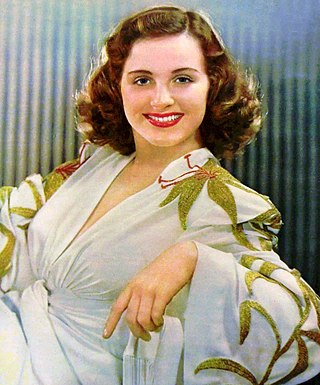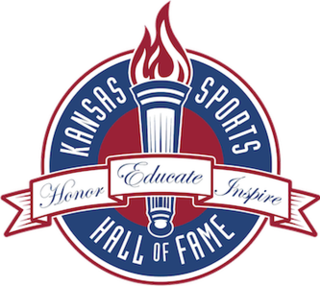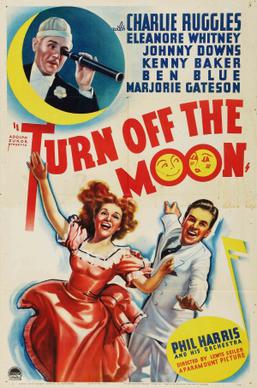1917 in film was a particularly fruitful year for the art form, and is often cited as one of the years in the decade which contributed to the medium the most, along with 1913. Secondarily the year saw a limited global embrace of narrative film-making and featured innovative techniques such as continuity cutting. Primarily, the year is an American landmark, as 1917 is the first year where the narrative and visual style is typified as "Classical Hollywood".

Matt Moore was an Irish-born American actor and director. He appeared in at least 221 motion pictures from 1912 to 1958.

John Morey Downs was an American actor, singer and dancer. He began his career as a child actor, most notably as Johnny in the Our Gang short comedy film series from 1923 to 1926. He remained active in films, television and theatre through the early 1960s.

Mary Constance Moore was an American singer and actress. She appeared in wartime musicals such as Show Business and Atlantic City and the classic 1939 movie serial Buck Rogers, in which she played Wilma Deering, its only female character.

Marjorie Burnet Rambeau was an American film and stage actress. She began her stage career at age 12, and appeared in several silent films before debuting in her first sound film, Her Man (1930). She was twice nominated for the Academy Award for Best Supporting Actress for her roles in Primrose Path (1940) and Torch Song (1953), and received the 1955 National Board of Review Award for Best Supporting Actress for her roles in A Man Called Peter and The View from Pompey's Head.

James Ellison was an American film actor who appeared in nearly 70 films from 1932 to 1962.

The Kansas Sports Hall of Fame is a museum located in Wichita, dedicated to preserving the history of sports in the state of Kansas. The museum provides exhibits, archives, facilities, services, and activities to honor those individuals and teams whose achievements in sports brought distinction to themselves, to their communities and to the entire state of Kansas.
Great Day is an unfinished 1930 American pre-Code musical film, which was to star, in alphabetical order, Johnny Mack Brown, Joan Crawford, John Miljan, Anita Page, Marjorie Rambeau and John Charles Thomas.

Cecil Lauriston Kellaway was a South African character actor. He was nominated for the Academy Award for Best Supporting Actor twice, for The Luck of the Irish (1948) and Guess Who's Coming to Dinner (1967).

In Old Oklahoma is a 1943 American Western film directed by Albert S. Rogell starring John Wayne and Martha Scott. The film was nominated for two Academy Awards, one for Music Score of a Dramatic or Comedy Picture and the other for Sound Recording. The supporting cast features George "Gabby" Hayes, Marjorie Rambeau, Dale Evans, Sidney Blackmer as Theodore Roosevelt, and Paul Fix.
Laughing Sinners is a 1931 American pre-Code Metro-Goldwyn-Mayer feature film starring Joan Crawford and Clark Gable in a story about a cafe entertainer who experiences spiritual redemption. The dialogue by Martin Flavin was based upon the play Torch Song by Kenyon Nicholson. The film was directed by Harry Beaumont. Laughing Sinners was the second of eight cinematic collaborations between Crawford and Gable.
This is a list of players, both past and present, who appeared in at least one game for the New York Giants or the San Francisco Giants.

Trocadero is a 1944 American musical comedy film directed by William Nigh and starring Rosemary Lane, and Johnny Downs, Ralph Morgan, Dick Purcell, Sheldon Leonard, Cliff Nazarro, Marjorie Manners, and Erskine Johnson.

Kit Carson is a 1940 Western film directed by George B. Seitz and starring Jon Hall as Kit Carson, Lynn Bari as Delores Murphy, and Dana Andrews as Captain John C. Frémont. This picture was filmed on location at Cayente (Kayenta), Arizona and was one of the early films to use Monument Valley as a backdrop. The supporting cast features Ward Bond as a character named "Ape", future Lone Ranger Clayton Moore without his mask, and Raymond Hatton as Jim Bridger.

Hold That Co-ed is a 1938 American comedy film directed by George Marshall, starring John Barrymore, George Murphy, Marjorie Weaver, Joan Davis and Jack Haley.

Her Man is a 1930 American pre-Code drama film produced and distributed by Pathé Exchange, directed by Tay Garnett and starring Phillips Holmes, Helen Twelvetrees and Marjorie Rambeau. The film is inspired by the ballad Frankie and Johnny. The picture's supporting cast features James Gleason, Ricardo Cortez, Thelma Todd and Franklin Pangborn.

Turn Off the Moon is a 1937 American comedy film directed by Lewis Seiler, written by Mildred Harrington, Marguerite Roberts, Paul Gerard Smith and Harlan Ware, and starring Charlie Ruggles, Eleanore Whitney, Johnny Downs, Kenny Baker, Phil Harris and Ben Blue. It was released on May 14, 1937, by Paramount Pictures. It was directed by George Archenbaud and Produced by Fanchon.
Sudden Money is a 1939 American comedy film directed by Nick Grinde, written by Lewis R. Foster, and starring Charlie Ruggles, Marjorie Rambeau, Charley Grapewin, Broderick Crawford, Billy Lee and Evelyn Keyes. It was released on March 31, 1939, by Paramount Pictures.













